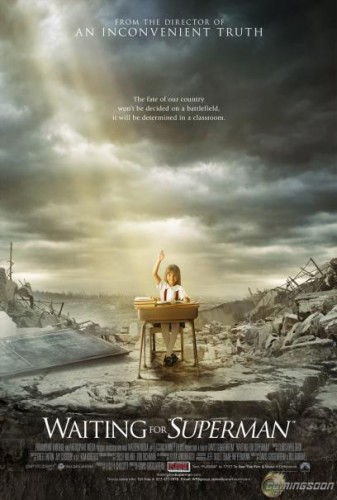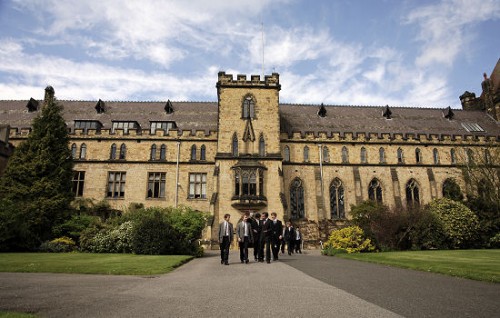
The latest installment of the Oxford American is the Education Issue. In it are all sorts of stories about teaching, teachers, bad schools, good schools, back-to-school, the smartest girl in school, schools of hard knocks, the school cafeteria, field trips, college trips, pop quizzes, quiz cheat-sheets.
 In a time when nearly every sociopolitical conversation touches on education, there is, thanks to the efforts of numerous reform initiatives in public schools nationwide, a growing and overdue respect for the teaching profession. Having worked as a public school teacher for the last two years, I can testify that much of my conversations with non-teachers turned overwhelmingly responsive with gratitude and genuine interest when they found out what I was doing in New Orleans. Things are happening in the education world, everyone is talking about it–and yet, it seems, people are only grateful as long as you are doing the right kind of teaching. There is an undeniable ethical prestige to teaching in a Waiting for Superman school, and doing otherwise seems to be at best a cop-out, at worst a bourgeois refusal to sup with your neighbor.
In a time when nearly every sociopolitical conversation touches on education, there is, thanks to the efforts of numerous reform initiatives in public schools nationwide, a growing and overdue respect for the teaching profession. Having worked as a public school teacher for the last two years, I can testify that much of my conversations with non-teachers turned overwhelmingly responsive with gratitude and genuine interest when they found out what I was doing in New Orleans. Things are happening in the education world, everyone is talking about it–and yet, it seems, people are only grateful as long as you are doing the right kind of teaching. There is an undeniable ethical prestige to teaching in a Waiting for Superman school, and doing otherwise seems to be at best a cop-out, at worst a bourgeois refusal to sup with your neighbor.
My professor in college, upon telling her I was going to teach in the inner-city through a certain corps of college grads, responded lightly with, “Just don’t forget, rich kids still have hearts.” I still think about that, especially now. Excerpts from the following story by Andrea Avery takes this line of thinking to experience. A teacher at a well-to-do private school, she talks about the moralistic pharisee in us all, the one that judges that to be best, and this to be, well, okay, not as good. She speaks about money, about what it does to the children she teaches, and what judgment it sparks from those on the outside, who use it for the sake of generalities. As an advocate for her arguably privileged and justifiably encumbered students, she renders the heart of human conundrum of pain.
The rest of “Nice Work If You Can Get It” can be read by purchasing the magazine:
When I tell people what I do–in the ubiquitous strangers-on-a-plane conversation, of if they spy in a coffee shop, peering over a towering stack of blue books, ink on my hands and a calculator at the ready–I always get a variation of the same response. “A high school teacher,” they say. “Well, God bless you.” A guy who builds medical clinics in the Third World clasped both of my hands in his and said, “Thank you for the work you do.”
I demur, I try to explain: The life I live, the work I do, this is not Stand and Deliver. I just finished my third year of full-time teaching, and so far I have never had to go to a student’s house, a la Precious, and beg her to come back to class. I do not, typically, purchase supplies for my classroom out of my own pocket. Speaking of my classroom: It is bright and clean and comfortable and when it is full with my “big” class, it has just twenty-one students in it. And my students: I have them as tenth-graders, but they all go on to finish high school and they all go to college. They are all cooperative and hardworking and curious and ambitious. They are rarely well-rested, they are typically well-fed, and they are usually quite well-dressed. Yes, I do know how good I have it.
And so you’ve probably figured out by now that I teach at a nonsectarian college-preparatory school–a “private” school in the popular shorthand–and when my new friend on the plane or the coffee shop figure that out, he usually scoffs. “Oh, well. A private school.” The hands are retracted as are, I’d guess, the blessing from God.
…Here’s what I don’t say, because I won’t damn my students, even with faint praise: Our kids don’t face the same set of problems that kids in cash-strapped public schools do. But they have problems. Depression and anxiety, bipolar disorder and a range of dysmorphias. Leukemia, [expletive]. Furthermore, the horrifically ingenious coping mechanisms people have disguised–drugs and alcohol and eating disorders and cutting and suicide–these are not things only poor kids do. But I don’t say that to the stranger on the plane because it would only confirm another tired, stereotype, similarly erroneous, that he’s likely harboring: that of the poor, troubled rich kid.
My students are not American Girl dolls and they are not American Psychos.
…The high school where I landed–which I’ve described to you–bore little resemblance to the rough-and-tumble public high school of my own upbringing. I stood in the “student center” one morning, looking out on the “quad,” and thought, “Where are all the pregnant girls and fistfights? How is this a high school?”
But it was a high school. It is. My tenth-graders may be absolved of passing any kind of state-mandated test to get a diploma, but there are benchmarks galore in their lives. The year I have them–oh, it is fun to watch!–the girls’ braces come off, the boys’ pants are always too short for their suddenly Stretch Armstrong legs…They claim they’ve outgrown Harry Potter and they start Quidditch clubs (ironically) and they read Twilight and they discover, for the first time, Ibsen and the books and authors they will love forever. It is really something to have a student say to you, “I loved that poem by Li Po you showed us. Did he write anything else?” and be able to say, Yes, yes, oh heavens yes.
…I don’t know what I think about Michelle Rhee or teachers unions or merit pay or school choice or standardized tests or No Child Left Behind or lotteries or charter schools or vouchers or Waiting for Superman. I’m not the person to ask. But if you want to know how much straighter and taller a sixteen-year-old boy stands when you call him by name in the hallway and look him in the eyes and tell him that you read his essay on Chinua Achebe and, you know, it really got you thinking in a way you never did before about how Achebe uses translated and untranslated Ibo words, I can tell you all about that. Ask me about that in the coffee shop or on the plane, and I will talk all afternoon.

COMMENTS
One response to “I Don’t Teach Poor Kids: Need and Moralistic Stereotyping”
Leave a Reply















I wanted to comment on this before – especially that beautiful line, “Just don’t forget, rich kids still have hearts.”
It’s so completely important to remember that we are all afflicted – even those we think “were born with all the privileges.” It took me quite a while to learn and really understand this – and when I did, it broke my heart, really. So thanks very much for saying so….